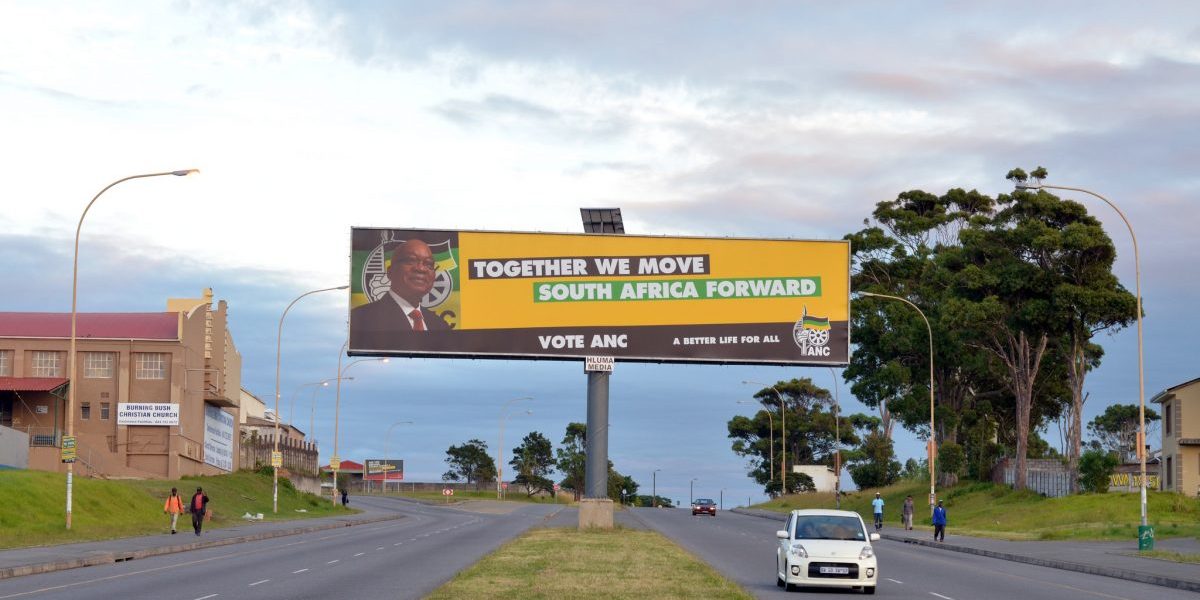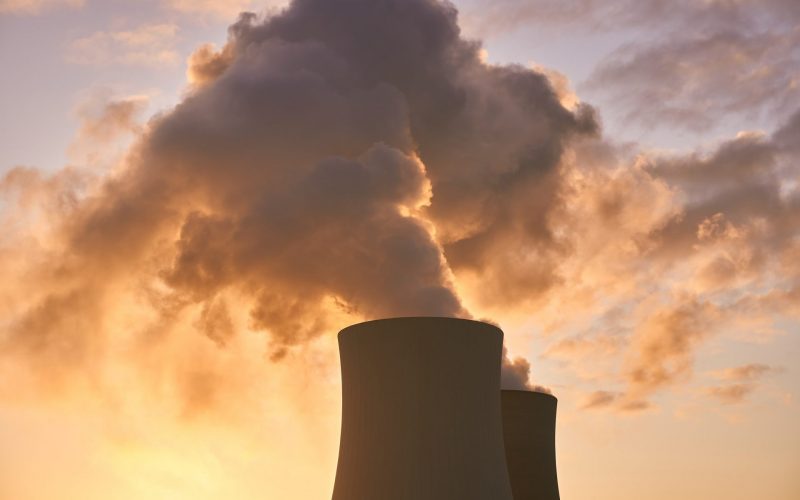AFTER a decade in power, the ruling African National Congress was so confident it would retain control after South Africa’s third democratic elections on 14 April 2004 that its leaders were treating the campaign more like a dental check-up with the people rather than a robust contest against political rivals.
Opposition? What opposition?
‘We have no campaign at all against the opposition,’ said Smuts Ngonyama, head of the presidency of the ANC, speaking on his cell phone. ‘Right now, I’m with the president, who is in the home of an old lady discussing issues important to her like housing and whether she is satisfied with the ANC’s rule. We are going directly to the people to build a foundation for the next decade. There is no need at all to campaign against the opposition.’
Choose any country in Africa. If there’s an election, Ngonyama’s attitude probably applies. Ten countries have already scheduled presidential and/or parliamentary elections this year (See story, page 8). Three more may follow. With the possible exception of Frelimo in Mozambique, no ruling party up for re-election appears remotely threatened.
Fifteen years after the fall of the Berlin Wall sent ripples of pluralism across the African continent, incumbents still enjoy tremendous advantages. Challenged by weak or divided oppositions, they can be magnanimous — if not arrogant. Confronted by more serious contenders, they can bend the powers at their disposal to preserve their place.
‘Where the ruling party feels threatened, then there are real problems for the electoral process,’ said Claude Kabemba at the Electoral Institute of Southern Africa in Johannesburg.
Opposition politics is a relatively new phenomenon in Africa. Most of the post-colonial period has been marked by authoritarian regimes. But after the Cold War ended and Africa lost its status as a checkerboard for super-power rivalries, donor nations began attaching new conditions to aid packages. Pluralism became a prerequisite.
But a flowering of political parties does not by itself produce democracy. Most opposition movements in the past decade have been fractious assemblies of diverse interest groups that rise up hastily before elections and dissolve immediately after. The one real exception may be the Movement for Democratic Change, a united front of trade unions and civil society groups that has become a powerful and permanent fixture on Zimbabwe’s political landscape.
There is little, meanwhile, to prevent ruling parties from marshalling national security forces for party interests, dominating state media, distorting electoral commissions or bullying parliaments and judiciaries.
‘Despite the introduction of multiparty competition, African electoral democracies are still characterised by high degrees of power concentration, evident in strong executive presidents, weak checks and balances, and one-party dominance,’ said Oda van Cranenburgh, African politics lecturer at the University of Leiden in the Netherlands.
In the most extreme cases, such as the Zimbabwe National African Union Patriotic Front (Zanu-PF) in Zimbabwe since 2000, threatened regimes resort to violent intimidation of opposition leaders and supporters, arrests and ballot stuffing. But elections can be manipulated in less overt ways, especially through complex, ever-changing registration requirements.
Some incumbent parties are reluctant to reform electoral systems that work in their favour – as the ANC did in 2003, rejecting proposed amendments to the proportional representation system recommended by an electoral task team. Conversely, they can also exert enormous influence on the demarcation of constituencies and the relative balance between rural and urban voting areas. Ahead of the parliamentary elections tentatively scheduled for March 2005, Zanu-PF has begun resettling city residents on peri-urban commercial farmland in an attempt to erode the MDC’s urban base. Those who take the bait face one condition: They must vote for the ruling party or face repercussions.
The lines between where a ruling party ends and a state begins are smudged. In South Africa, for example, there was enormous controversy in January 2004 over whether to broadcast the launch of the ANC’s election manifesto live on state television and radio.
Ruling parties also depend heavily on the charisma and ‘struggle credentials’ of their leader. Loyalty to liberation heroes runs deep. Ethnic divisions too remain entrenched and powerful determinants of voting patterns.
Former liberation move-ments ‘have very strong party structures,’ Kabemba said. ‘They galvanise these structures like a machine at election time, to keep the rulers ruling.’
Opposition parties, meanwhile, begin with a raft of disadvantages. Many are created around the singular ambitions of individuals. Fractious and diverse, they often pose more competition for each other than the ruling party.
Before Zambia’s 2001 election, concerted efforts to bring splintered opposition parties into a coalition to challenge the ruling Movement for Multiparty Democracy (MMD) collapsed when they failed to choose a leader acceptable to all. The cleavages in the opposition handed the MMD victory with just 29% of the vote.
‘In both Botswana and Malawi, the ruling parties will win this year through sheer weakness of the opposition that is disorganised, not united and seriously disadvantaged in resources,’ said Professor Mayuyuka Kaunda, senior research fellow at the Botswana Institute for Development Policy Analysis in Gaborone. ‘Electorates concentrate on a combination of personality and ethnicity; not on issues. In Botswana, there are no solid issues for the opposition to fight over. In Malawi, there are at least six guys scrambling to be the president. In the end, if they get enough votes, they are hoping to join with the government and eat with it. They are not principled, but search for which path will get them a Mercedes the quickest.’
Lack of resources and broad-based party structures are another problem. ‘Part of the story is that electorates in Africa, like everywhere else, make voting decisions based on information,’ said Professor Bob Mattes of the University of Cape Town. ‘Parties fail to use parliament to mount five-year election campaigns, they just conduct short campaigns. And as they struggle to get onto television, the public simply knows more about the ruling party than the opposition. Many disapprove of the ruling party, but because the image of the opposition is so poor, they see no alternative.’
Often, opposition parties lack serious, coherent alternative polices and principled, long-term strategies. ‘The image of opposition parties in Africa has been severely dented by the apparent readiness to use arms to deal with post-colonial dictatorships,’ said Morgan Tsvangarai, leader of the MDC in Zimbabwe. ‘The results have often been chaotic and unpredictable.’
Incumbents, however, are not invincible. The longer they retain power, the more vulnerable they become. At some point, popular disillusionment swells. In the December 2002 elections in Kenya, the one- month-old National Rainbow Coalition succeeded in toppling the Kenya African National Union, which had ruled since 1963. The 1992 and 1997 elections were widely regarded as stolen by KANU, and in 2002 the people overwhelmingly rejected them and chose the opposition and its anti-corruption, reformist ticket. NARC’s success was also partly attributed to the mobilisation of the people beyond the traditional, restricted media channels.
Organisation is critical. So is broad-based support among civil society. The MDC, importantly, has both. Rising from the trade unions and bolstered by a range of grass-roots movements, it was able to tap those structures to build a national party network.
Ultimately, strengthening pluralism in Africa will probably hinge on a higher sense of civic responsibility. Until parties — ruling or opposition — emerge from under the strong influence of individuals’ self-interest, political competition may offer little more to voters than the one-party politics of the past.
‘In Malawi, politicians use the election process to get jobs,’ Kaunda said. ‘Many have no other viable means to economic income if they are not in politics. In poor societies there are so few opportunities, people are attracted to any opportunity promising quick returns. Sadly, politics is one of them.’







